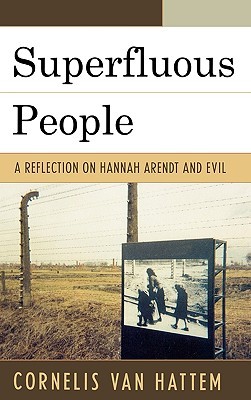
- We will send in 10–14 business days.
- Author: Cornelis Van Hattem
- Publisher: University Press of America
- ISBN-10: 0761833048
- ISBN-13: 9780761833048
- Format: 15.2 x 22.9 x 1.6 cm, hardcover
- Language: English
- SAVE -10% with code: EXTRA
Reviews
Description
Superfluous People describes Hannah Arendt's political and philosophical views on Nazi totalitarianism and the Shoah. In her contemplation of evil, Arendt initially spoke of the Shoah as a "radical evil," a term used by Kant. However, unlike Kant, Arendt's radical evil cannot be explained by human motives. Many years later she changed her mind and spoke of "the banality of evil," characterized by an inability to think and judge. Superfluous People seriously considers the question of whether thinking and judging can prevent evil. The role of the Jewish Councils and a reflection on the question of guilt concludes this book.
EXTRA 10 % discount with code: EXTRA
The promotion ends in 14d.23:36:00
The discount code is valid when purchasing from 10 €. Discounts do not stack.
- Author: Cornelis Van Hattem
- Publisher: University Press of America
- ISBN-10: 0761833048
- ISBN-13: 9780761833048
- Format: 15.2 x 22.9 x 1.6 cm, hardcover
- Language: English English
Superfluous People describes Hannah Arendt's political and philosophical views on Nazi totalitarianism and the Shoah. In her contemplation of evil, Arendt initially spoke of the Shoah as a "radical evil," a term used by Kant. However, unlike Kant, Arendt's radical evil cannot be explained by human motives. Many years later she changed her mind and spoke of "the banality of evil," characterized by an inability to think and judge. Superfluous People seriously considers the question of whether thinking and judging can prevent evil. The role of the Jewish Councils and a reflection on the question of guilt concludes this book.


Reviews